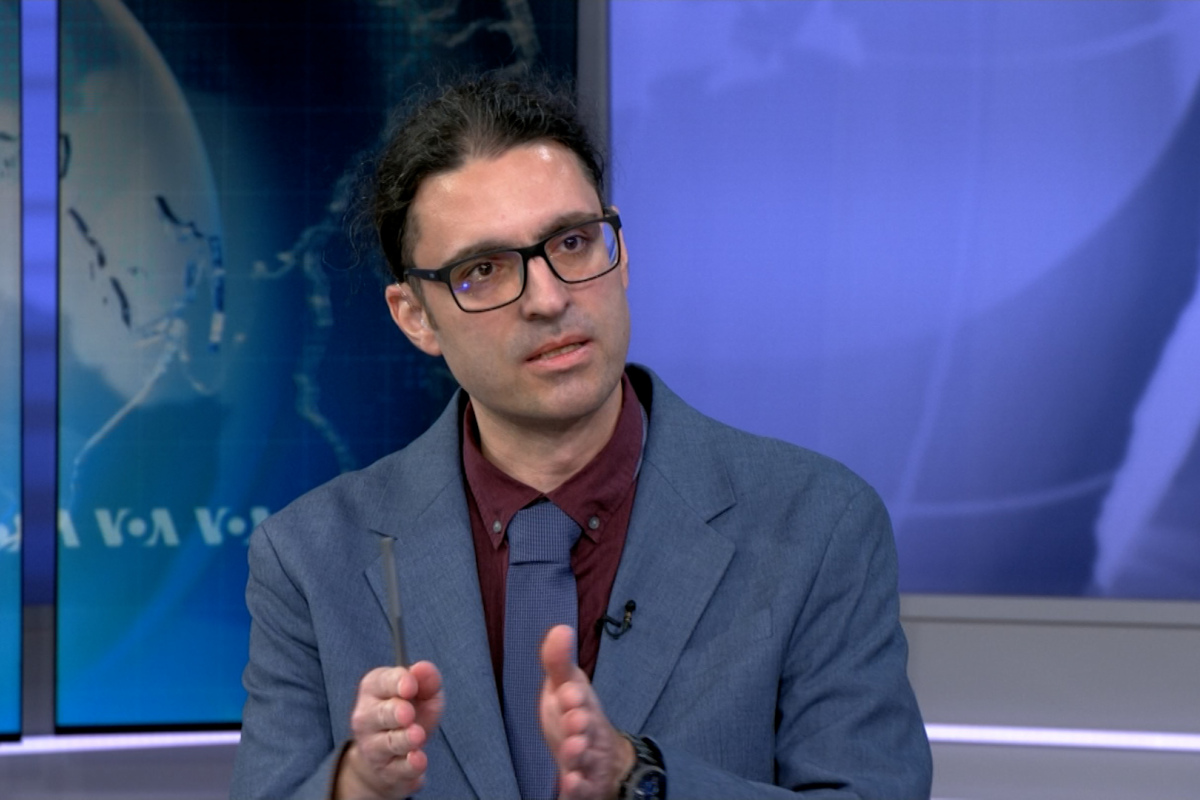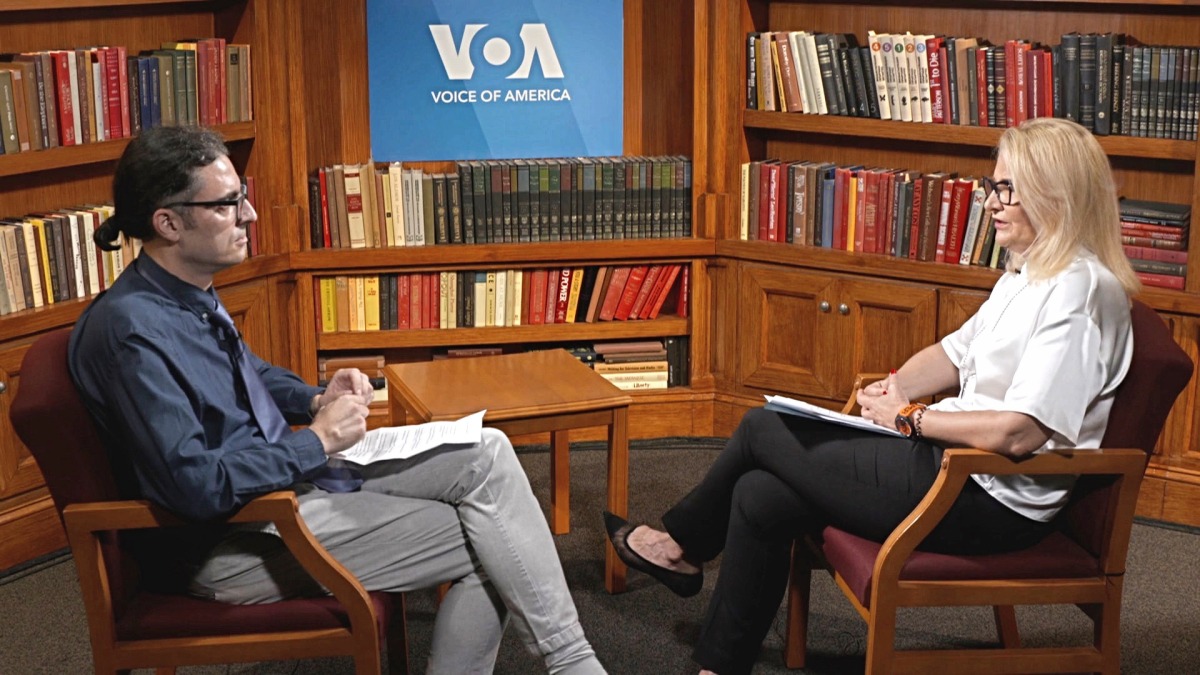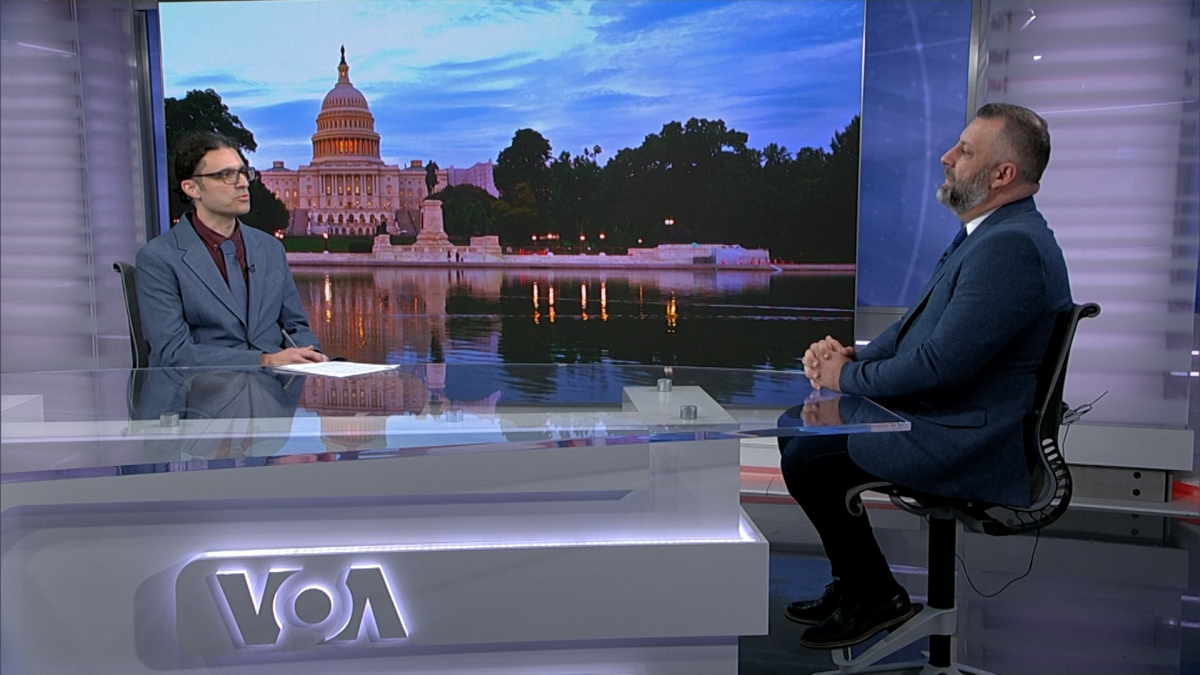Media freedoms in Serbia have never been more endangered than in the last 32 years

In this insightful interview, renowned journalist Milan Nešić shares his thoughts on the alarming decline of media freedoms, focusing on Serbia and global trends. Drawing from his experience with Voice of America and Radio Free Europe, Nešić highlights the increasing threats journalists face, the challenges of independent reporting, and the growing need for accountability. He also reflects on the broader global landscape, where even established democracies witness a troubling erosion of press freedom.
As a global journalist for Voice of America, you have been following events in Serbia for a long time. Unfortunately, the question is not whether media freedom exists in Serbia but how much it is threatened.
Our top priorities are media freedoms, both in the world and in our target area – Serbia and Montenegro. “Free Press Matters” (the VOA slogan) is, along with truthful and unbiased reporting and analysis, making the US perspective closer, the most important principle we adhere to. Therefore, we are frequently in contact with a vast number of international watchdogs focused on protecting and preserving media freedoms and other fundamental human rights and freedoms. The reports by Reporters Without Borders (RSF), the Council of Europe’s Platform to promote the protection of journalism and the safety of journalists, Freedom House, and Amnesty International are concerning. I will only list the bare facts – in this year’s report, RSF noted that media freedoms in Serbia have never been more endangered than in the last 32 years. EC’s Platform noted that Serbia is among the countries where journalists are frequently attacked, while numerous independent international watchdogs – such as the European Federation of Journalists (EFJ) or the International Press Institute (IPI) – often appeal to the highest Serbian government officials to refrain from targeting media and journalists.
They are appealing to investigate attacks on journalists and provide accountability. The same goes for the violations of human rights and freedoms. So, based on these facts, it may be said that Serbia, as well as many world countries– is regressing and violating the basic prerequisites of development and functioning as a democratic and pluralistic society.

Interview with Tanja Miščević, Minister of European Integration of Serbia Photo Voice of AmericaUsing the presidential elections as an example, is there objective reporting on both candidates here, or are U.S. media also divided into camps like they are in Serbia?
The US society is considered to be divided. Accordingly, the election campaign is covered the same way. In a way, it can be observed that so-called liberal media tend to lean towards the Democrat candidates – while the opposite goes for the conservative ones. Of course, public news outlets strive to report without bias as much as possible. Two apparent assassination attempts on the Republican candidate distinguish this campaign from all the others. Most mainstream media, whether conservative or liberal, provided factual information about the incidents. Their analyses, of course, varied depending on the perspective and topic being discussed. Yet, newscasts that provided the facts followed most of the guidelines, ensuring the reporting was unbiased and aligned with the moral codes of quality reporting.
Can we even discuss the threat to media freedom when it seems that freedom does not exist – just milder and more severe variations of non-freedom?
Once again, I will refer to the facts determined by international watchdogs whose mission is to protect and preserve human rights and media freedoms. They have constantly warned about the alarming situation in the last couple of years. Yet, they are not giving up despite the harsh situation and conditions. The same principles should be applied in journalism as well. Well-trained, good, and honourable journalists can perform their jobs by following the profession’s highest standards and are also aware of what they should restrain. Furthermore, there are clear and precise guidelines and warnings made by international and domestic watchdogs that various decision-makers, leaders, and authorities should implement if they strive for their societies to be free, prosperous, and pluralistic. If all sides adhered to it, instead of undermining and jeopardising other people’s freedoms and rights, they would be much broader and more accessible.

Is there an honest fight for media freedom today when the same fighters are not equally engaged in the freedom of society, which is a prerequisite for media freedom? An example is the lack of a sharp reaction to the influence of Serbian media on unfree elections.
A vast number of international and domestic watchdogs focused on preserving human rights and media freedoms – clearly and frequently point out the challenges threatening various freedoms and the ways to address them. It is up to the actors and leaders to perceive it and do everything in their power to achieve improvements. However, it seems that such things rarely happen. A kind of confirmation is also seen in Serbia: independent media outlets, investigative portals, and non-governmental organisations are often targeted and accused by the highest-ranking state officials. Nothing is done to prevent or stop that. They are often targeted because of their work: fact-based investigative reports on corruption and other abuses or advocating for human rights and freedoms. Praised and awarded abroad – they are persecuted in their own country and societies.
What is the regime’s relationship with free media in Serbia?
The facts presented by the prominent international watchdogs indicate that independent, unbiased, and, if you will, free media are targeted by the Serbian highest officials. On the contrary to playing a role which would assist in improving society as a whole and reducing abuses, corruption, and other wrongdoings, independent media outlets have to defend themselves from various attacks and SLAPP lawsuits are used to put them out. As surprising as it may sound, the state and its officials should ally with professional, unbiased and independent media outlets. It should be a society where fact-based criticism or well-documented investigative reports expose significant corruption. That would help the authorities to do their job much better, rather than doing everything to silence such efforts.
The journalism profession has always been stressful and dangerous, but is it shocking when journalist killings happen even in the European Union (Netherlands, Malta, Slovakia…)? How do you explain that this is possible even in the free EU?
No matter how progressive they appear – the European Union, the US, and others- they still have not achieved the needed and desired levels of freedom and human rights protection. The murders of Ján Kuciak, Daphne Caruana Galizia and Peter R. de Vries are despicable and unacceptable. Their mission should be an eternal reminder – the truth cannot be slayed, and their work is recognised and forever remembered. In the last couple of years, at least two journalists were killed in the US. Jeff Germans’ and Dylan Lyons’s deaths have been linked to their work. It is unacceptable to take someone’s life – just because the wrongdoings of the accountable individual are about to be revealed. Yet, this jeopardy will always exist, regardless of how developed a society may be.
You have a long career in Serbia and the U.S. Can you compare?
It could be said that a two-decade career consists of two different segments, which share a common goal is innovation and excellence. The beginnings in Serbia are linked with the prominent radio station B92 – which had great significance during the nineties and the rule of Slobodan Milosevic. Afterwards, it moved to Radio Free Europe/Radio Liberty (RFE/RL). The most prominent moment was the reception of the Investigative Excellence Journalism Award in 2017, which bears the name of the late Dejan Anastasijevic – one of the bravest Serbian journalists. I enjoyed cooperating and socialising with wonderful people and colleagues at the RFE/RL’s Belgrade bureau. Then came the biggest personal and professional change, the move to Washington, starting with the Voice of America Serbian service.
Journalists praised abroad for their work are persecuted in their own countries for exposing corruption and advocating for human rights
Producing content relevant to our target area, Serbia and Montenegro – also has recipients in Bosnia and Herzegovina, North Macedonia, and elsewhere. Here, I was given a completely unexpected opportunity to directly get in touch with and interview US officials, including in shaping and defining the US policies towards Serbia and the Western Balkans. I have also become more oriented towards television while providing reports to our Serbian affiliates. I have realised the significance of exclusive news and information in the US. Just minutes after publishing accurate and truthful content, media outlets in our target area will start picking it up. In addition, field reporting through the US cities provided the opportunity to meet and talk to common people and share stories about their lives, expectations, hopes and concerns.
Given the increasing influence of AI and social networks, is journalism headed for a”technological revolution”? Or has it perhaps already happened?
Despite its omnipresence for almost two years, AI still seems to be the great unknown. In the short term, it may assist with journalistic tasks – while writing stories and reports. However, in the long term, there seems to be a concern –possibly replacing human resources. AI anchors taking spots of TV personalities as we know them, or reporters with laptops on their laps facing the story deadline… Will there still be investigative reports and high corruption revealed… AI inclusion is welcomed as a means of assistance that would ease journalists’ hard work. Yet, the world would forever need a reporter or a journalist who would use its skills, knowledge, experience and ethics as a guarantor of quality, truthful, unbiased and sincere reporting.
This interview was originally published in the October edition of Diplomacy&Commerce magazine, issue #99.
Interview conducted by: Dragan Nikolić
Photos by: Voice of America